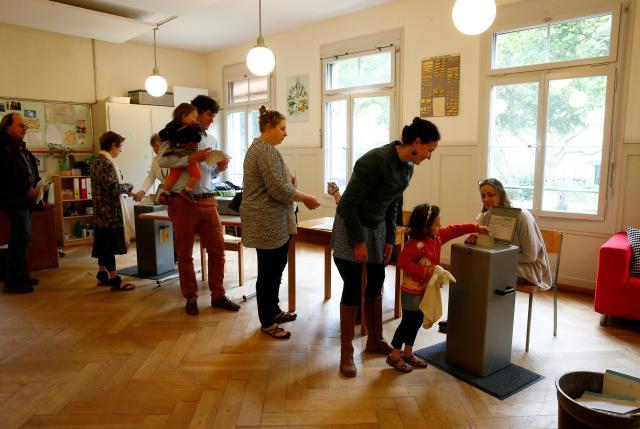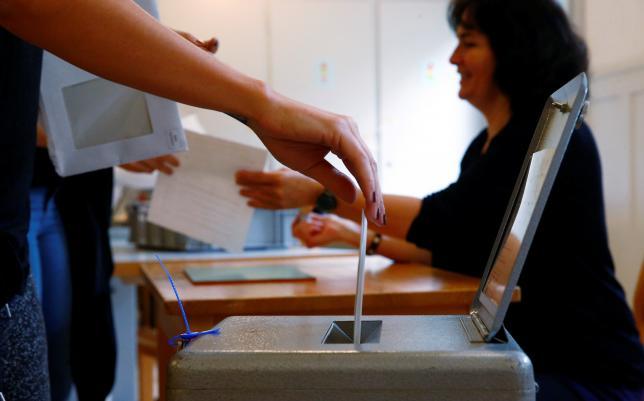Conservative Switzerland voted against basic income payments

Basic income will not come to Switzerland in the near future, after today's vote
Switzerland became the first country in the world to hold a nationwide vote for the payment of unconditional basic income (AML) to all citizens of the country, regardless of welfare and working status.
Despite the spectacular campaign, AML activists failed to win over the majority of the population. At the referendum on June 5, 2016, 23.1% of citizens who participated in the referendum (568 905 people) supported the idea. Against - 76.9% (1 896 963). Turnout was 46.3%.
The inhabitants of only a few urban areas of Zurich, Bern, Geneva, as well as the cantons of Jura and Vaud voted for the payment of the AML
')

Voting in a referendum in a school in Bern (Switzerland), June 5, 2016

Voting in a referendum in a school in Bern (Switzerland), June 5, 2016
Voting against AML is well in line with preliminary opinion polls and exit polls in Switzerland. However, it looks somewhat unexpected against the backdrop of sentiment in other European countries. A recent pan-European survey showed that 64% of Europeans support the idea of unconditional basic income, especially in Spain and Italy. The survey was conducted on a representative sample of 10,000 people in 28 EU countries.
However, Swiss citizens had to carefully examine the proposal before making a decision. Supporters of AML offered to pay 2500 francs ($ 2,562) to all adult citizens of the country and 625 francs ($ 641) to citizens under 18 years of age. The proposal turned out to be many opponents, including the government of the country: the Swiss authorities said that the program to pay unconditional basic income would be too expensive and weaken the economy.
“The activists could not present a convincing financing scheme for their proposal. But they managed to start a wide public discussion on the topic of unconditional basic income, ” commented independent political scientist Claude Longchamp on the results of the referendum.
A group of activists, which includes humanists, artists and entrepreneurs, admitted defeat, but promised to continue the public campaign.
“As many public discussions have shown, there is a genuine interest in this topic,” said Oswald Sigg of the organizing committee.
Switzerland uses methods of direct democracy more often than others and submits to the referendum a variety of issues of public importance. For example, last year, the proposal of a fundamental reform of the tax system received only 8% of the vote - the minimum support for any proposal in referendums since 1971. On the other hand, the revolutionary proposal of a group of pacifists to dissolve the armed forces of Switzerland received as much as 35.6% of the vote in 1989.
In 2014, 76.3% of voters were against the proposal to increase the minimum wage to 4,000 francs.
Despite the defeat in the referendum, supporters of the AML celebrate a moral victory: “As a businessman, I’m a realist and counted on the support of 15%, but now the result is more like 20%, or maybe even 25%. In my opinion, this is an incredible and sensational result, ” says Daniel Haeni, the owner of a cafe in Basel. “When I see media interest, including foreign ones, I can say that we are ahead of everyone and set the trend.”

Conservative Switzerland is the first country in the world to hold a national referendum on the introduction of an unconditional basic income, but others will follow its example. This idea is considered in Finland and some other countries.
The proponents of the concept are confident that with the development of robotics and the automation of human labor, the idea of AML will become even more popular and, perhaps, even obvious to all.
Source: https://habr.com/ru/post/394725/
All Articles